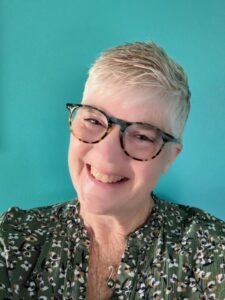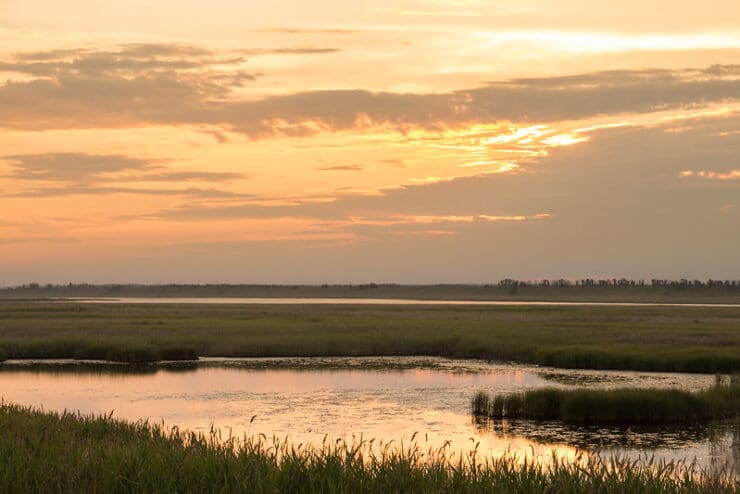
Donna Vorreyer comes to grips with aging, grief, and longing
I’ve reached the age when you realize most of your life is behind you. Your priorities and interests have changed. For example, ou care more about art than you used to. Judged by how much you spend reading it, the most interesting thing in the newspaper is the obituary section.
You realize that you’re a link in a chain; that’s why you are considerably more interested in family history and genealogy and FamilySearch.org is one of your most visited websites. You also learn why your mother spent so much of her later years in doctors’ offices, and why your mother-in-law stays fascinated with watching the antics of birds.
In short, you think about things that weren’t even on your radar scope 20 and 30 years ago.
Poet Donna Vorreyer is thinking about those things, too — things like grief, aging, longing, the beauty of nature, why your bones are aching more, the importance of holding on, and why those small daily delights become more important and vital than your career. “I have nothing left to prove,” she writes. And she’s assembled her thoughts, meditations, and observations to form her latest collection, Unrivered: Poems.

Donna Vorreyer
Vorreyer writes poems with those themes, and she does so with a wry sense of humor, self-understanding, and the knowledge that you can’t stop the clock. In fact, time seems to flow faster. (Maybe that’s why Silicon Valley billionaires are investing considerable money to extend the length of their lives; they might save themselves some money and read Unrivered instead.)
In her poem “Transubstantiation,” one of the most moving poems in the collection, Vorreyer sees the birth/life/aging process as something akin to a religious rite, or at least something sacred: “How the child can cradle the mother now, rock her in arms she bore. How the child can cradle the father now, soothe him with hands he kissed and held. How the priest blesses their foreheads while they can still speak.” I’m reminded of sitting with my mother, in her final year, listening to her telling stories about her life I never knew, just as she used to read fairy tales and tell me stories when I was a child.
Vorreyer describes an annual eye exam, followed in the same poem by a mammography exam and a biopsy, never once mentioning the names of these tests. She writes of finding her place in the line of family, how she wants to be a river, “gathering stones, signals to shape my current.” That idea of “rivering” frames the final poem in the collection, “The Self, Unrivered.”
One poem again reminded me of my mother. She often said she hated her 40s, loved her 50s and 60s, and then faced the physical issues of her 70s and 80s (she died at 90). “There’s nothing golden about the golden years,” she’d often say. Vorreyer might agree, but she phrases it a bit more poetically.
To Be Honest, Not at All Like Fine Wine

of ghost fish surrounding me, a mantle
of mist to conceal the damage.
I’ve been told some do this gracefully,
but who has the energy for grace?
Instead, I cling to small miracles,
admire the intricate lace edges of kale
mapping an unknown coast. I search
a box of languages for one that buzzes
at the pitch of preservation.
But the odometer rolls forward
no matter how many times I stop
at yellow lights, horns behind me blaring.
I beg your pardon. I am trying
to make something last.
Vorreyer previously published three poetry collections — A House of Many Windows (2013), Every Love Story Is an Apocalypse Story (2016), and To Everything There Is (2020), and seven chapbooks. Her poems have been published in numerous literary and poetry publications. She is the co-editor and co-founder of the online journal Asterales: A Journal of Arts & Letters, and she directs the online reading series A Hundred Pitchers of Honey. She lives in suburban Chicago.
The poet knows well of what she speaks and writes. Unrivered is about the quiet later years, when the passions fall away and you come to understand what is important about a life. If you’re of a certain age, you’re going to find yourself in most if not all these poems. I did.
Photo by Anton Vakulenko, Creative Commons, via Flickr. Post by Glynn Young.
How to Read a Poem uses images like the mouse, the hive, the switch (from the Billy Collins poem)—to guide readers into new ways of understanding poems. Anthology included.
“I require all our incoming poetry students—in the MFA I direct—to buy and read this book.”
—Jeanetta Calhoun Mish
- Poets and Poems: Donna Vorreyer and “Unrivered” - October 7, 2025
- Poet Sidney Lanier and the Lost Cause - October 2, 2025
- Poets and Poems: A.J. Thibault and “We Lack a Word” - September 30, 2025


Leave a Reply